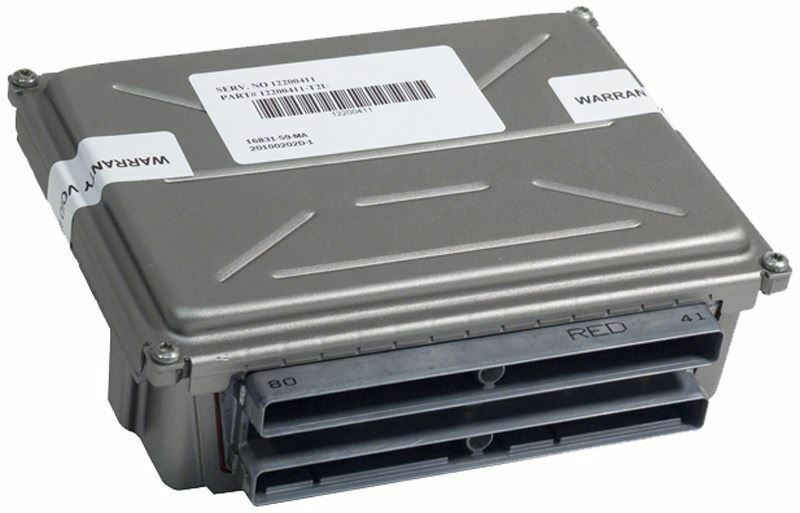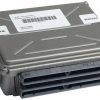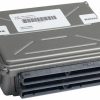End the Guesswork and Get Your GM Running Right Again
Is your truck or SUV suffering from a mind of its own? Unexplained stalling, a persistent check engine light, or erratic shifting can be incredibly frustrating, leaving you stranded and questioning your vehicle’s reliability. These are classic signs that the brain of your engine, the Powertrain Control Module (PCM), is failing. This isn’t just an inconvenience; it’s a critical component failure that affects performance, fuel economy, and safety. It’s time to stop worrying and start driving with confidence again.
This replacement PCM, service number 12586242, is the definitive solution. We take the hassle and high cost of a dealership visit out of the equation. Upon purchase, simply provide us with your vehicle’s VIN, and our technicians will flash the module with the latest, most stable software updates directly from GM. It arrives at your door, ready for a straightforward installation, restoring the crisp performance and dependable operation you expect from your vehicle.
From the Garage: The Case of the Phantom No-Start
A customer with a 2004 Sierra 1500 was at his wit’s end. His truck would randomly refuse to start, but only after it was warm. He’d replaced the battery, starter, and fuel pump, but the problem persisted. No codes were stored. He finally brought it to us, and after checking all the basics, we suspected the PCM. When the engine was hot, a hairline crack on the circuit board would expand, breaking a connection. We installed one of our VIN-programmed PCMs, and the problem vanished instantly. He called a week later, overjoyed that his truck was finally reliable again, saving him from what would have been a massive diagnostic bill at the dealer.
Warning Signs and How This Module Solves Them
A failing computer can manifest in numerous ways. If you’re experiencing any of the following, this part is your solution:
- ✔ Check Engine Light: Often with communication error codes like P0601, P0602, or P0606.
- ✔ Poor Performance: Noticeable loss of power, hesitation during acceleration, or rough idling.
- ✔ Reduced Fuel Economy: The engine isn’t receiving the correct parameters for fuel delivery, causing it to run rich or lean.
- ✔ Intermittent Stalling: Your vehicle may shut off unexpectedly while driving or at a stop.
- ✔ No-Start Condition: The engine cranks but refuses to start due to a lack of spark or fuel injector commands.
- ✔ Harsh or Failed Shifting: The PCM also controls transmission functions, and a fault can cause erratic gear changes.
Guided Installation to Restore Peace of Mind
Replacing your 2004 Rainier PCM is a manageable job for a confident DIYer. Follow these steps to get back on the road quickly. Remember to always disconnect the battery first!
- Disconnect the Battery: Using a wrench, disconnect the negative terminal of your vehicle’s battery to prevent any electrical shorts. Safety first!
- Locate the Old PCM: On most of these GM trucks and SUVs, the PCM is located in the engine bay, either next to the airbox or under the battery on the driver’s side.
- Unplug the Connectors: Carefully release the locking tabs on the electrical harness connectors and pull them straight out from the module. Inspect them for any corrosion or damage.
- Remove the Module: Unbolt the PCM from its mounting bracket. It’s typically held in by a few small bolts.
- Install the New PCM: Mount your new, pre-programmed PCM onto the bracket and securely plug in the harness connectors. You’ll hear a click as they lock into place.
- Reconnect the Battery: Re-attach the negative battery terminal and tighten it.
- Perform Security Relearn: Your vehicle’s anti-theft system may need to be relearned. This simple procedure usually involves turning the key to the ‘ON’ position for 10-15 minutes, then off, and repeating two more times before starting the engine. Consult your owner’s manual for the exact steps for your model.
Pro-Tip: Check Your Grounds!
Before you condemn your old PCM, take a moment to check and clean the main engine and body ground connections. A loose or corroded ground wire can cause bizarre electrical issues that mimic a faulty computer. A few minutes with a wire brush can sometimes save you a lot of time and money.
Tailored Fit for Your GM Ride
This module is a direct replacement for service number 12586242 and is guaranteed to be compatible with a wide range of 2004 General Motors vehicles. Please verify your service number or vehicle in the list below to ensure a perfect match. This is the correct 2004 Rainier PCM and also fits:
- Buick Rainier (5.3L)
- Cadillac Escalade, ESV, EXT
- Chevrolet Avalanche 1500
- Chevrolet Silverado & Sierra 1500, 2500, 3500 (Gasoline Engines)
- Chevrolet SSR
- Chevrolet Suburban & Yukon XL 1500, 2500
- Chevrolet Tahoe & GMC Yukon
- Chevrolet Trailblazer EXT (5.3L)
- GMC Envoy XL & XUV (5.3L)
- Hummer H2
- Isuzu Ascender (5.3L)
Note: This part is a direct replacement for service numbers 19299226, 89017738, and a wide array of specific broadcast codes including YFKD, YFKF, YFKH, YFKJ, YFKX, YFXL, YFXM, YFXN, YFXP, and YHTN.
Frequently Asked Questions About The 2004 Rainier PCM
Do I need to do any programming myself?
No. We handle all the programming for you before shipment. Just provide your vehicle’s VIN during checkout, and the module will arrive flashed with the latest GM software, ready for installation.
What is the security relearn procedure?
This is a simple process to sync the new PCM with your vehicle’s anti-theft system. It typically involves a sequence of key turns and waiting periods. While instructions are included, you can also find many vehicle-specific guides online. It requires no special tools.
Is this a plug-and-play part?
Yes, after the security relearn procedure is completed, it is plug-and-play. The programming to your VIN ensures that all engine and transmission parameters are correct for your specific vehicle configuration.
Will this fix my specific check engine light code?
This PCM is the direct solution for internal module failure codes like P0601 (Internal Control Module Memory Check Sum Error). For other codes, ensure you have diagnosed the root cause, as a faulty sensor or wire could also be the culprit. However, a failing PCM can often cause a wide range of seemingly unrelated codes.
What information do you need from me?
All we need is the 17-digit Vehicle Identification Number (VIN) from your vehicle. You can find this on your dashboard (visible through the windshield) or on your vehicle’s registration or insurance card.


